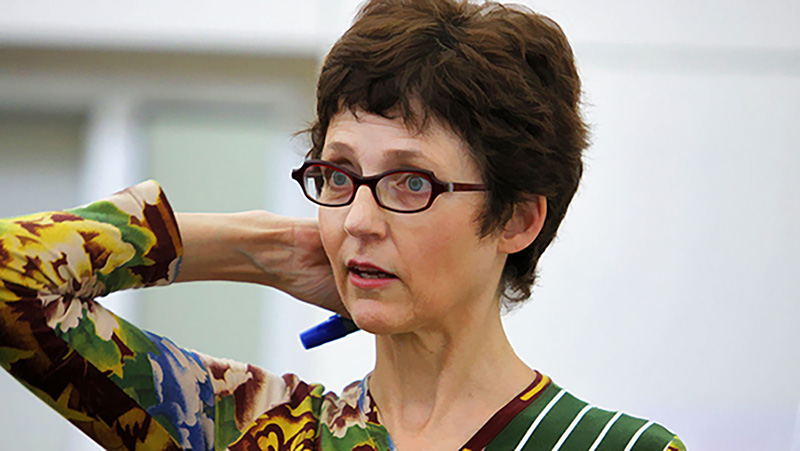Tracy Seeley

Tracy Seeley, Professor of English, a truly outstanding teacher-scholar at USF from 1993 until her untimely death in 2016, had a vision. She imagined a university-wide resource and mentoring center with programs for professional teaching development. She advocated for such a center beginning in 2006, and it finally came to fruition in 2010 when, in response to Professor Seeley’s idea, the provost convened a task force of faculty, led by Professor Seeley and Professor of Education Mathew Mitchell, to establish the Center. Professors Seeley and Mitchell served as the Center's first co-directors when it launched in 2011.
Since its founding, the USF Center for Teaching Excellence (CTE) has created numerous programs to assist and support new faculty, mid-career faculty, and senior faculty to be the very best teachers they can be. The University’s teaching environment has been transformed by the constant and dynamic conversations, workshops, and exchanges about pedagogy and curriculum. Most of all, the Center has encouraged faculty to be free to take risks in the classroom in order to create the best possible learning environment for students.
Professor Seeley’s legacy of great teaching, and her vision for inspiring and mentoring other great teachers, lives on through the USF Center for Teaching Excellence.
Jennifer Turpin, Provost Emeritus and Professor of Sociology
I’ve had many conversations with Tracy over the last five years about CTE, and she made two comments in an offhand manner that nonetheless have seemed like the pillars of what CTE is.
The first is she remarked that she saw CTE as a sort of “pirate ship” that floated all over campus and paid bidding to no particular master. This was central, because in order to be a respite, a safe space for community and exploration, CTE could not be serving administrative needs. It had to be available to serve faculty needs. Over time I have also come to see how though the business of administration of the university cannot be wished away, being ‘the pirate ship’ allows CTE to be a space apart, and to stand for the other aspects of the educational enterprise including the human connections that are at its heart. CTE can allow faculty to explore their role as teachers and all that implies as a spiritual vocation to create spaces for younger people to grow beyond their own expectations.
The second comment was when we were starting to look for Mathew’s replacement as co-director of CTE. (Tracy had chosen me as her replacement.) We were debating what made someone a good co-director, and she remarked, “It would have to be someone who checks their ego at the door.” This is central because being head of CTE is not being an expert in pedagogy, or telling other faculty how it is done. It is remarkable how frequently faculty request that we bring in experts to tell them what to do, but in a sense, we are forcing them to be free in Rousseau’s terms. As CTE co-directors, we model learning about teaching, continual curiosity, willingness to experiment, and most importantly, recognition of our failures. Tracy stood up and talked frequently about what went wrong with her classes, and how she decided to respond. Being a teacher isn’t in the end about showing how much you know, but about being excited to learn. That means admitting you don’t know everything---a problem for many faculty…. CTE’s own pedagogy must model what we want faculty to be able to do for their students. Teaching is about the journey; as soon as you think you have arrived at the end, all is lost.
Keally McBride, Professor and Former Co-Director of the CTE